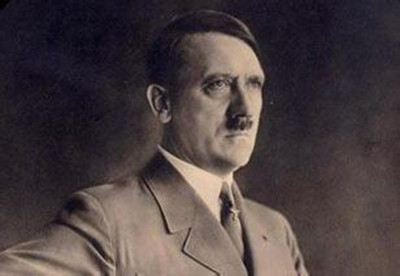Harsh and theatrical as his speeches appear to us today, at the time, his performances soon got him noticed in Munich.
盡管現(xiàn)在看來,他的演講夸張做作,但在當(dāng)時的慕尼黑,他很快受到關(guān)注。
He seemed to be able to express the anger many people felt, as well as their desire to blame someone else for the problems Germany faced-particularly the Jews.
他似乎能為人們找到泄憤的出口,也能煽動民眾將德國的困境歸咎于某個群體,特別是猶太人。
This speech, from 1933 shows how Hitler's own hatred connected with the audience.
從1933年的演講中可看出,他如何讓自己的仇恨與觀眾產(chǎn)生共鳴。
Many now shared Hitler's warped prejudices, and his intolerance was taken as strength of character.
當(dāng)時許多人有這種扭曲偏見,對猶太人的厭惡,成為他的優(yōu)勢。












